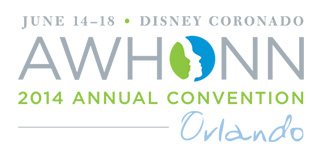A Program For Pregnant Women Electing Inpatient Opioid Detoxification
Title: A Program For Pregnant Women Electing Inpatient Opioid Detoxification
- Describe voluntary opioid detoxification.
- Identify the risks and benefits of opioid detoxification in pregnancy.
- List three barriers in the expansion of detoxification services for opioid dependent women.
Proposed change: The proposed change in management is to offer opioid dependent pregnant the opportunity for a “sober” delivery and a “sober” infant.
Implementation, outcomes and evaluation: A private substance abuse treatment facility provides insured and private pay opioid dependent pregnant women elective inpatient detoxification with tapered doses of buprenorphine and short courses of anxiolytics and other pharmacotherapies as needed. The average length of inpatient stay is two weeks with intensive outpatient counseling and support. Anecdotal reports indicate positive perinatal outcomes and clients reported satisfaction with care. Many of the women were able to achieve sobriety at the time of delivery and harbored less guilt about the potential for NAS.
Implications for nursing practice: Ethical issues surrounding potential risk for fetal loss and altered fetal development with opioid detoxification warrant consideration. There are no standardized protocols for detoxification in pregnancy and the treatment is not endorsed by the American College of Obstetricians and Gynecologists (ACOG) or the American Academy of Pediatrics (AAP). Nurses will be at the forefront in the assessment and management of women undergoing inpatient detoxification.
Keywords: Opioid dependence in pregnancy, neonatal abstinence syndrome, opioid detoxification in pregnancy, buprenorphine, sobriety
As a result of the current epidemic of opioid abuse in the Unites States there has been a rise in maternal opioid dependence and treatment with synthetic opioids, namely methadone or buprenorphine. Over half of the neonates with in-utero exposure to regular maternal opioid use experience neonatal abstinence syndrome (NAS). Presently, it is estimated that one newborn is born with NAS every hour (Patrick et al., 2012) and these neonates stay in the hospital for an average of 16.4 days compared to 3.3 days for those without NAS. The increased length of stay and complications that infants with NAS experience, such as increased rates of prematurity, low birth weight, respiratory problems and seizures, elevate health care expenditures. The need for an inexpensive and effective treatment for NAS is crucial but more importantly, a strategy to prevent NAS is preferable. Detoxification among a select group of opioid dependent pregnant women to prevent NAS warrants consideration and further exploration.
